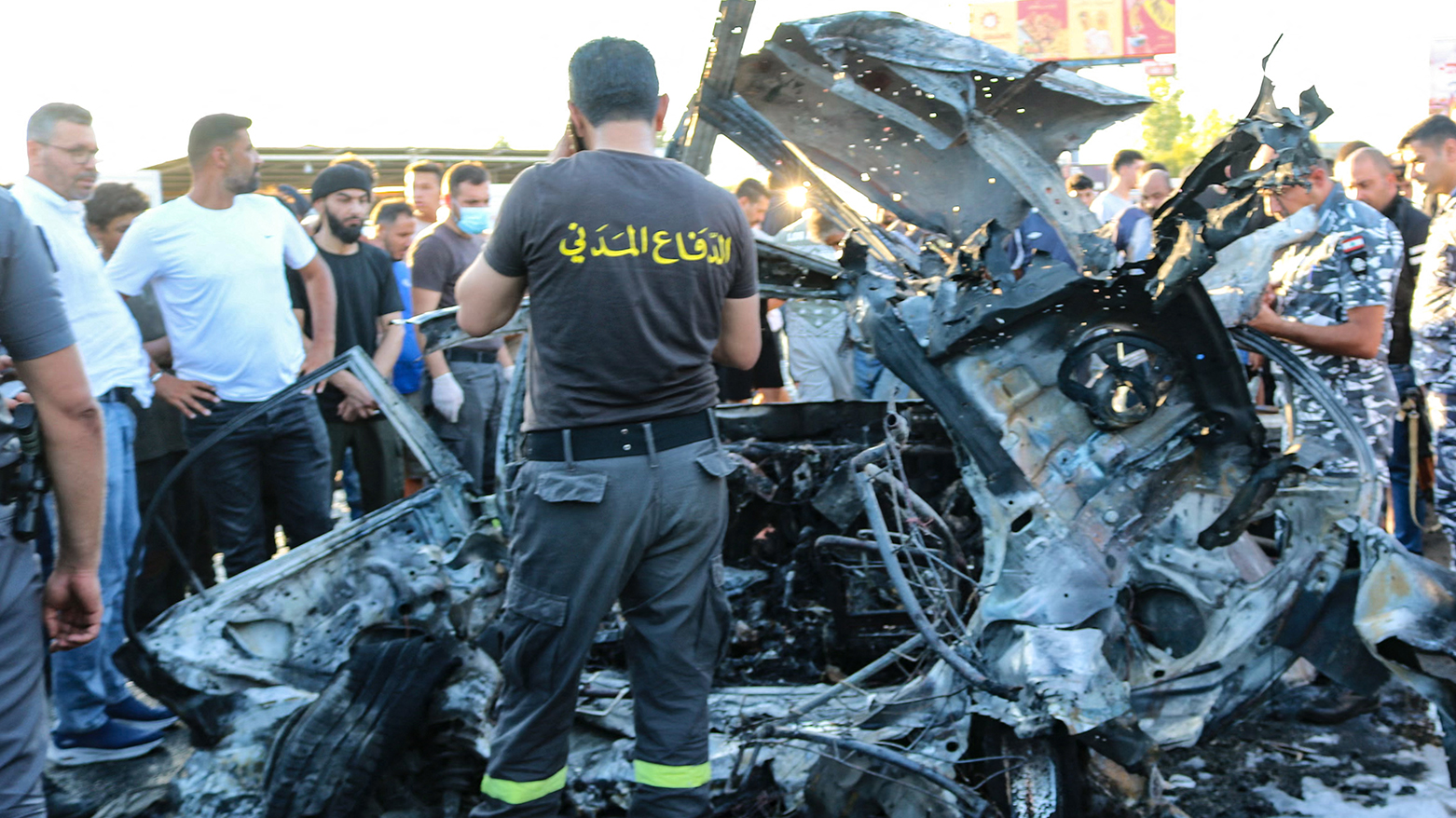Israeli Strike in Southern Lebanon Kills Journalist as Political Crisis Over Hezbollah’s Disarmament Deepens
Israeli strike kills journalist in Lebanon amid Hezbollah disarmament crisis. Shiite ministers boycott cabinet vote as US envoy backs 'One Army' plan. Violence escalates despite ceasefire, testing diplomatic efforts.

ERBIL (Kurdistan24) – An Israeli strike on Friday killed one person in southern Lebanon’s Nabatiyeh district, the Lebanese health ministry confirmed, marking the latest cross-border escalation despite a November ceasefire agreement.
The victim, identified as Mohammad Shahadeh, was a local journalist who ran a news website. Colleagues and friends took to social media to express condolences, while Hezbollah released an obituary describing him as a “martyr on the road to Jerusalem”—a term the group uses for fighters killed in its conflict with Israel.
Friday’s attack came just a day after Israeli airstrikes in the eastern Bekaa Valley killed seven people, including two senior members of the Popular Front for the Liberation of Palestine (PFLP). The group mourned “commander and Central Committee member Mohammad Khalil Wishah” and “field commander Mufid Hassan Hussein,” accusing Israel of a “treacherous Zionist assassination crime” on the Syria–Lebanon road.
The Israeli military confirmed the operation, alleging that Wishah had led the PFLP’s “military-security department in Syria” since his predecessor was killed in an Israeli strike in Beirut in September. It further claimed that Wishah had been working to advance attacks against Israeli targets.
The violence coincides with a deepening political crisis in Lebanon over a U.S.-backed plan to disarm Hezbollah. On Thursday, a critical cabinet meeting was adjourned after four Shiite ministers—including members of Hezbollah’s parliamentary bloc and the allied Amal party—walked out in protest. Independent Shiite MP Fadi Makki also withdrew, saying on X that he “couldn’t bear the responsibility of making such a significant decision in the absence of a key component from the discussion.”
Although the cabinet endorsed the objectives of the proposal, it did not address its full details. Hezbollah has rejected the initiative outright, accusing the government of yielding to U.S. and Israeli pressure. The group vowed to treat the decision “as if it does not exist” and declared it would not negotiate disarmament until Israel withdraws from five occupied hills and halts its airstrikes.
Washington has praised Beirut’s move, with U.S. envoy Tom Barrack calling it a “historic, bold, and correct decision” to enforce the November ceasefire stipulation that arms be limited to state institutions. On X, Barrack wrote, “This week’s cabinet resolutions finally put into motion the ‘One Nation, One Army’ solution for Lebanon. We stand behind the Lebanese people.”
Lebanese MP Faisal al-Sayegh told Asharq Al Awsat that restricting weapons to the state is essential for building a functional country and securing international guarantees against future Israeli aggression. He urged Iran to “reconsider” its stance and adopt a “positive and helpful role,” stressing that such a shift cannot occur until the state holds sole authority over decisions of war and peace.
As Israeli strikes continue and Lebanon grapples with an escalating political rift, the ceasefire’s fragility is once again under the spotlight—casting doubt on whether diplomatic efforts can keep pace with events on the ground.